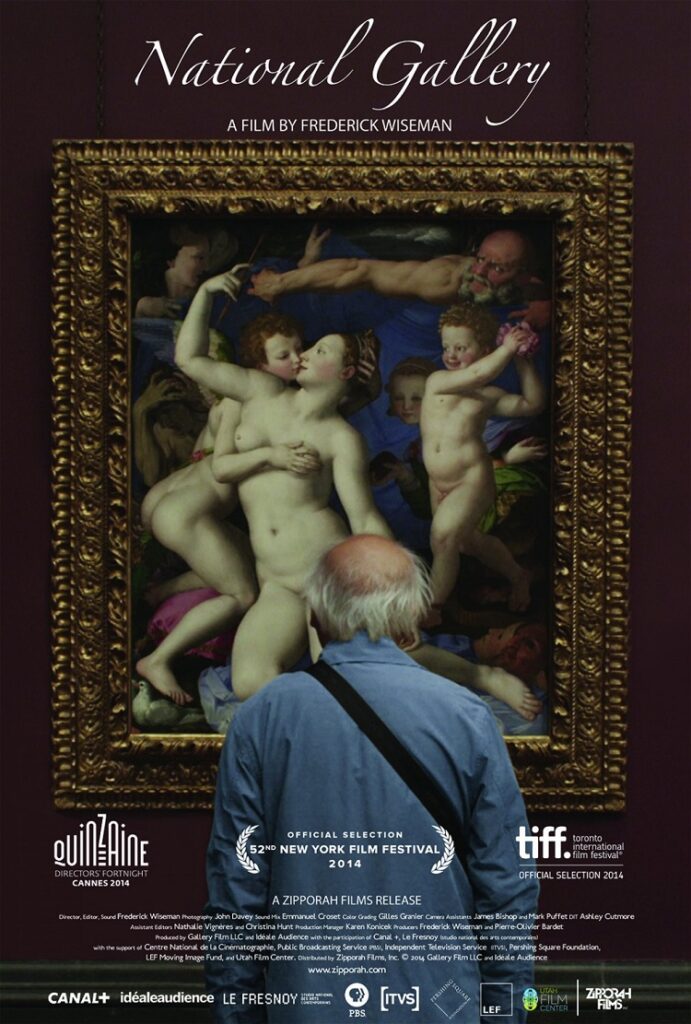
Although the documentary genre is a brilliant piece of cinema history, many people haven’t exactly embraced it, and that unfortunately includes the distinct work of the legendary Frederick Wiseman, which consists of an almost 60-year span, including such famous films as Missile (1986), Central Park (1989), La Danse (2009). Two of my favorites of him are the horrifying 1967 film Titicut Follies about the extremely deplorable conditions, and awful treatment of patient inmates of the Bridgewater State Hospital for the criminally insane, and the other is probably his most popular film, the brutally transgressive 1968 high school documentary called High School about life in a lower-middle-class secondary school. Returning to his remarkable craft, he gives us a sophisticated look into art in his newest vision National Gallery, a three-hour journey into London’s most prestigious art gallery, turning his camera on the visitors and the staff who works there.
It is not just about art in general; it is about going into deep analysis of what makes art so memorable, transfixing, and sometimes a challenge to understand. Wiseman’s eye for detail is absolutely extraordinary, as he films stand-out moments such as a gallery guide explaining to a kindergarten class how a painting recounts a story, and the exhibition’s old watchman, who accepts the National Gallery ought to keep its unsure stateliness in place.
The film’s champion stars are also excessively different, from Nicholas Penny, the former Director of the National Gallery, to the energetic exhibition guides, and the TV moderator snapping at his chief to allow him to sit unbothered to compose his script in peace.
Most astonishing are the restorers, who demonstrate a colossal measure of forethought and aptitude as they go about their work. These particular people seem to know so much about art, and why it continues to have an affect on interested societies who wish for something more respectable instead of reality TV, celebrity scandal, and overexposed people whose fifteen minutes of fame should have been over long ago.
Arguably, no one makes a more polished, involving documentary than Wiseman, whose career is something unique, and what other documentarians aspire to? At 84, he continues to be a very strong presence, as he brings true, or almost true stories to life.
With all of those over-hyped actions, and dumbed-down dumb comedies, it is very nice to watch a film that explores our reception and appreciation of art, and how that art is curated, lit, and displayed for us. Wiseman does that quite well for us, so if you seek cinematic fulfillment, then you may want to turn to this new Wiseman feast.